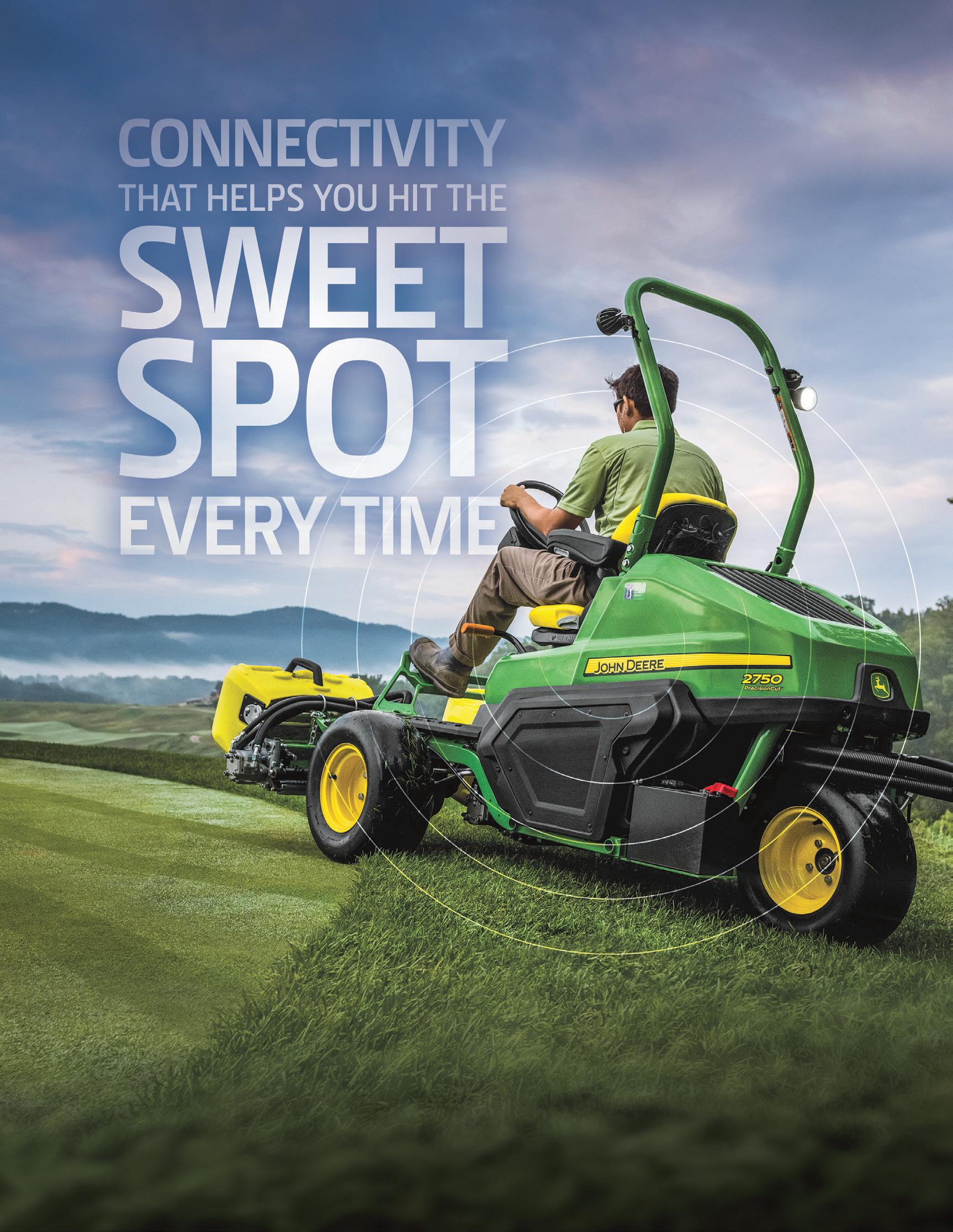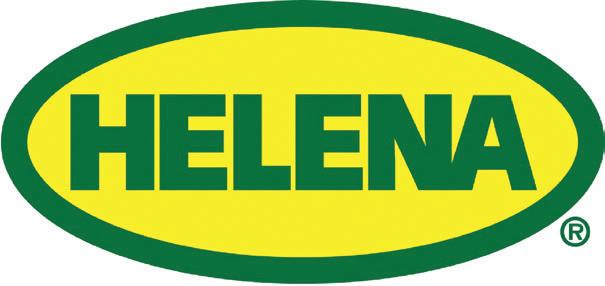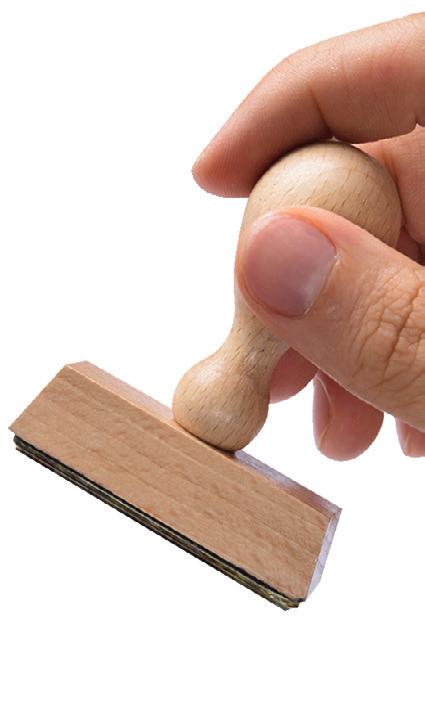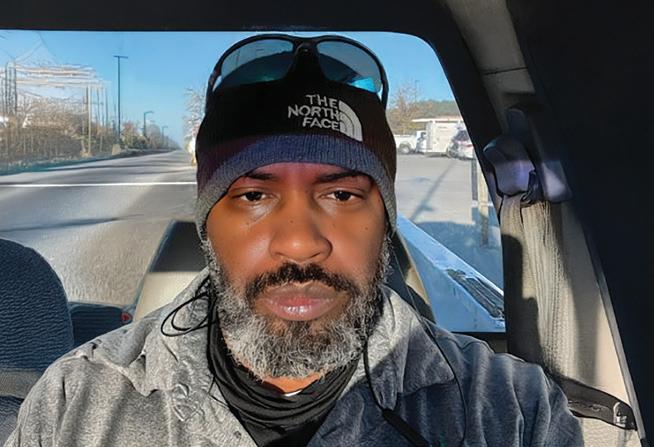

Experience Superior Turf with TifTuf ®
In just seven years, TifTuf®’s installation of over 2 billion square feet has saved more than 48 billion gallons of water. It’s the only Bermudagrass to top National Turfgrass Evaluation Program trials 93% of the time, far ahead of Tahoma at 73%. Recognized for its drought tolerance, TifTuf® is the USDA Specialty Crop Research Initiative’s standard for future university testing and has earned the #1 ranking in the USDA/NTEP ET-Based Water Deficit Research Trial.
TifTuf ®’s water efficiency has garnered numerous awards, including the Smart Approved Water Mark from Australia’s Water Services Association, the Georgia House and Senate’s Extraordinary Water Conservation award, and the

Georgia Association of Water Professionals’ Water Wise Award. It’s also named the Turfgrass of Choice by Southern Living Inspired Communities.
TifTuf® is the most produced proprietary Bermudagrass globally, with more produced in the U.S. than all other varieties combined worldwide. It is the preferred choice for new golf courses, sports fields, and residential and commercial landscapes, and it’s the only Bermuda

sold through Home Depot and Lowe’s by Harmony Outdoor Brands.
While others check boxes, TifTuf® redefines them. Experience the exceptional quality and innovation of TifTuf® turfgrass.

The Turfgrass Council of North Carolina (TCNC) serves its members in the industry through education, promotion and representation. The statements and opinions expressed herein are those of the individual authors and do not necessarily represent the views of the association, its staff, or its board of directors, North Carolina Turfgrass, or its editors. Likewise, the appearance of advertisers, or TCNC members, does not constitute an endorsement of the products or services featured in this, past or subsequent issues of this bimonthly publication. Copyright © 2025 by the Turfgrass Council of North Carolina. North Carolina Turfgrass is
bi-monthly. Subscriptions are complimentary to members of TCNC. Presorted standard postage is paid at Jefferson City, MO. Printed in the U.S.A.
and Submissions: North Carolina Turfgrass allows reprinting of material published here. Permission requests should be directed to
We
for unsolicited freelance manuscripts and photographs. Contact the managing editor for contribution information.
rates and insertions, please contact Leading Edge Communications, LLC, 206 Bridge








Happy New Year!

we kick off 2025, it’s the perfect time to reflect on our community’s needs and priorities, which were front and center in the results of the 2024 TCNC Interest Survey. The insights highlight our industry’s evolving needs and remind us why the Turfgrass Council of North Carolina remains such a vital resource for turfgrass professionals across the state.
One standout finding is that 89% of respondents consider turfgrass management techniques the most valuable area of technical education, with a strong interest in topics like pest and disease management (74%) and soil science and fertility (71%). These preferences emphasize the importance of staying current with best practices and innovations in our field. Our members are clearly committed to excellence, and TCNC is dedicated to providing the resources you need to succeed.
Another notable insight is the high value placed on continuing education, with nearly half of respondents ranking it as the most important benefit for their professional development. From hands-on workshops to online self-paced courses, TCNC proudly offers diverse educational opportunities tailored to meet your needs. For example, 79% of respondents highlighted educational workshops and webinars as a top priority, underscoring the importance of accessible, impactful learning.
Networking continues to play a critical role, with 53% identifying networking events as a highly valuable service. Building strong connections enriches our careers and strengthens our entire industry. If you haven’t yet attended one of our events, I encourage you to make 2025 the year to jump in and connect with your peers.
We were also thrilled to see that 89% of survey participants are current TCNC members, reflecting the loyalty and engagement of our turfgrass community. For those who haven’t joined yet, reasons like unfamiliarity with benefits (33%) show us there’s more work to do in communicating all that TCNC has to offer, which is one reason we launched the Regional Ambassador Collaboration Channel. You can read all about this exciting initiative in the following pages.
Looking ahead, TCNC is committed to listening, evolving, and providing the tools you need to thrive. Your voice shapes our priorities, and your involvement drives our success. Let’s make 2025 a year of growth, innovation, and connection.
Thank you for your continued dedication to our industry and for allowing TCNC to be your trusted partner in turfgrass.
Best regards,
Wil Sutton President Turfgrass Council of North Carolina
North Carolina Turfgrass is the official publication of the Turfgrass Council of North Carolina
P.O. Box 641 Wake Forest, NC 27588 984.301.5460
www.turfgrasscouncilnc.org
CHIEF STRATEGY OFFICER
Marcy Cottle info@turfgrasscouncilnc.org 984.301.5460
Published by:
Leading Edge Communications, LLC
206 Bridge Street Franklin, TN 37064 615.790.3718 Fax 615.794.4524
info@leadingedgecommunications.com
TCNC OFFICERS
PRESIDENT
Wilson Sutton Emerald Golf Club New Bern, NC
VICE PRESIDENT
Greg Harris
Leap Frog Land Care, Inc. Fuquay-Varina, NC
TREASURER
Jonathan Richardson, NCCTP NCCTP Chairman Green Resource Dunn, NC
PAST PRESIDENT
Kevin Herrmann Fairway Green Inc. Raleigh, NC
DIRECTORS
Brian Beane Southern Turf Winston-Salem, NC
Alpha Jones
Fayetteville Woodpeckers Fayetteville, NC
Shaun Kerr
Gates Four Golf and Country Club Fayetteville, NC
Spencer Thomas Keith Hills Country Club Lillington, NC







2025 PARTNERS PLATINUM

EMERALD




Companies wishing to support TCNC with multiple members can join as Deluxe Members. Deluxe Memberships can be purchased in one of three tiers: 1–5 employees; 6–10 employees; or 11+ employees.
If you'd like to learn more about the Deluxe Membership, please contact the TCNC office at 984.301.5460 or info@turfgrasscouncilnc.org.
Barefoot Lawn Care and Landscaping Services
Canopy Lawn Care
Carol Woods Retirement Community
Carolina Green Corp
City of Asheville Parks and Recreation
City of Raleigh Parks and Recreation
Duplin Sod
Edison Landscaping
Emerald Green
ETM Coastal
Fairway Green of Charlotte
Fairway Green of Raleigh
Fayetteville Tech
Gates Four Golf and Country Club
Green Resource
JRM Inc.
Keith Hiils Golf Club
Leapfrog Landcare
NaturaLawn of America (Raleigh)
Nature's Select
McConnell Golf
Morehead City
Quality Turf
Sod Solutions
Southern Ag
Southern Garden
Southern Seeds, Inc.
The Biltmore Company
The Sunrock Group
Tillery Country Club
Town of Cary Public Works
Town of Garner
Triangle Chemical Company
Turf Mountain Sod, Inc.
UNC – Chapel Hill
Wake Forest University
Weed Man
Renewal as of 4/24/2024
Don't see your company's name? Renew today at www.turfgrasscouncilnc.org
CROP AND SOIL SCIENCES
Dr. Travis Gannon Assistant Professor 919.515.2647 travis_gannon@ncsu.edu
Emily Erickson Crop Science Lecturer 919.513.2034 emily_erickson@ncsu.edu
Dr. Susana Milla-Lewis Professor & University Faculty Scholar 919.280.3443 susana_milla-lewis@ncsu.edu
Dr. Grady Miller Professor & Extension Specialist 919.515.5656 grady_miller@ncsu.edu
Dr. Rob Richardson Associate Professor & Extension Specialist 919.515.5653 rob_richardson@ncsu.edu
Dr. Wei Shi Professor 919.513.4641 wei_shi@ncsu.edu
Dr. Fred Yelverton Professor & Extension Specialist 919.515.5639 fred_yelverton@ncsu.edu
Dr. Qiyu Zhou Assistant Professor 313.782.2892 qzhou9@ncsu.edu
ENTOMOLOGY AND PLANT PATHOLOGY
Dr. Terri Billeisen Extension Associate 919.515.7464 tlhoctor@ncsu.edu
Dr. Rick Brandenburg Extension Leader 919.515.8876 rick_brandenburg@ncsu.edu
Lee Butler NC State Turf Diagnostics Lab 919.513.3878 ebutler@ncsu.edu
Dr. James Kerns Professor and Extension Specialist 919.513.4820 jpkerns@ncsu.edu
HORTICULTURE SCIENCE
Dr. Danesha Seth Carley Director, Southern IPM Center & Associate Professor 919.513.8189 danesha_carley@ncsu.edu
www.turffiles.ncsu.edu/people/



Become a NC Certified Turfgrass Professional!
TheNorth Carolina Certified Turfgrass Professional (NCCTP) program is a comprehensive program developed to enhance the technical competency of turfgrass professionals, while elevating their professional image, that of your business and of the turfgrass management industry. Administered by the Turfgrass Council of North Carolina, the NCCTP designation confirms your expertise in turfgrass management to prospective customers and your peers.
Reasons to Begin Earning Your NCCTP Designation Today
The NCCTP program increases and enhances your turfgrass industry knowledge, career, and business development through a course of study of in-depth coverage of the science of turfgrass management.
The NCCTP designation offers immediate confidence and credibility of turfgrass management practices to customers and prospective employers.
Promote and market yourself as a North Carolina Certified Turfgrass Professional.
• Use the NCCTP logo on your business materials.
• Use NCCTP pins, uniform patches, and vehicle decals.
• Your TCNC Member Directory listing is distinguished with the NCCTP designation.
We Are Partnered With The NC State Turfgrass Professional Short Course
The NC State Turfgrass Professional Short Course, a comprehensive turfgrass education program, is offered at select NC State Extension offices and at NC State University. This Short Course offers a full curriculum of the science of turfgrass management as well as Continuing Education Credits for NCDACS Pesticide and NCLCLB Landscape Contractors' license holders, and it will help you prepare for the NCCTP exam.
This Short Course is recommended but not required to take the NCCTP exam.
Fast Facts about the NCCTP
Enrollment Requirements:
Hold a current TCNC membership. If not currently a member, go to www.turfgrasscouncilnc.org and click 'JOIN NOW' to join online or download an application.
Have a minimum of one full year of work experience in the turfgrass industry.
Agree to the Certified Turfgrass Professional Code of Ethics as detailed on the application form.
Submit:
• A current and valid NC Pesticide Applicators license
• A completed NCCTP application (current TCNC members may apply online).
• NCCTP Program Application: $150
• Self-Study Materials: $50
• Exam Fee: $50
Curriculum and Exam
Curriculum covers nine core areas: Turfgrass Characteristics; Establishing Turfgrass; Soils & Nutrient Management; Cultural Practices; Pests & Integrated Pest Management; Pesticides & Plant Growth Regulators; Landscape Safety & Pesticide Use; Calculations & Calibration; Turfgrass Business & Economics.
Candidates have six months from the date of their enrollment acceptance to complete the NCCTP exam. Candidates have six hours to complete the exam and must score 80% or more on each section to receive the NCCTP designation.
Exams can be taken at the TCNC office in Raleigh during normal business hours, or arrangements can be made at your local NC State Extension location.
Exams will not be graded if any application information is missing or if TCNC membership status cannot be confirmed. Please allow two to three weeks for exam grading and reports.
Upon successful completion of the exam, candidates will receive communication with their results and either next step options or their graduation packet.
Maintenance Requirements
Maintain a current TCNC membership as a means of demonstrating ongoing support for the industry. Submit an annual $50 renewal fee, which supports the NCCTP program and related promotional activities. Designation year is the same as the TCNC membership year, from July 1st to June 30th.
Hold a current NC Pesticide Applicator's License. Subscribe to, actively support and uphold the TCNC Certification Code of Ethics.
The NC Certified Turfgrass Professional designation (NCCTP), the NCCTP logo and related programs materials are the trademarked property of the Turfgrass Council of North Carolina and cannot be used without TCNC's written permission.
For additional information, contact TCNC at 984.301.5460.
Members
Chris Breedlove
High Rock Land & Hardscapes Summit, NC
Vance Dalton
AgSouth Farm Credit Statesville, NC
Jay Fojtik Travelers Rest, NC
Michael Hall
ProGreen Turf and Landscape, Inc. Newport, NC
Drew Hinnant Turfguard Pikeville, NC
Joe Pulawski Pulawski Enterprises, LLC Leland, NC
Jerry Sroka
J & L Landscaping, Inc. Raleigh, NC
Eric Steffensen
PBI Gordon Tega Cay, SC
John Wade
JustGreen Lawn and Landscapes Knightdale, NC





Stacey Weir
The Biltmore Company Asheville, NC




ZOYSIAGRASS? WHY
By Grady Miller and Ray McCauley
Itis not every day that a homeowner picks a grass for their yard. With the number of variables to consider, it can be a stressful decision. From an economic perspective, it is not just the cost of a new yard, but the long-term maintenance that comes along with it. Since a specific grass usually has some unique management requirements as well as specific visual distinctions, the decision will have ramifications that can last many years.
Central North Carolina is in the transition zone: an area where the summers are too hot for cool-season grasses to thrive and the winters are too cold for the warm-season grasses to maintain winter growth and quality. But this also translates to an area that can grow about any grass with some level of success most years. The turfgrasses best suited for central North Carolina are tall fescue, tall fescue/bluegrass mixtures, zoysiagrass, centipedegrass, and bermudagrass.

A 2024 installation of NCSU’s Lobo zoysiagrass.
Southern Agricultural Insecticides, Inc. is a distributor of pesticides, fertilizers, potting soils, and horticultural supplies with locations in Florida and North Carolina.
MANUFACTURERS OF… DISTRIBUTORS FOR…
Blue Colorant
Chelated 5% Iron
Chlorpyrifos 2.5% G
Chlorpyrifos Mole
Mole Cricket Bait
Defoamer
Latron B–1956
Methylated Seed Oil
Snail Bait
Soil Acidifier
Soil Wetting Agent

Soluble 10–30–20
Soluble 30–7–14
Soluble 20–20–20
Spreader Sticker
Surfactant for Herbicides
Tank Cleaner
Turf Green
Tweak
12–0–0–6% iron
GOLF COURSE SALES STAFF
Jim Wells — West Central Florida (941) 720–2712
Roger Welker — East Coast Florida (772) 260–0282
Kevin Downing — South Florida (561) 427–4501
Jeff Strother — Southwest Florida (941) 270–0470
Andrew Wampler — Western Carolinas (828) 674–2594
Brandon Hicks — Central North Carolina (336) 906–0803
Nathan Biggs — North Carolina...................... (704) 996–5125
AMVAC Andersons
Aquatrols
BASF
Bayer
BioSafe Systems Bioworks
Certis
Corteva Agriscience
Envu
FMC
Gowan
LebanonTurf
Milliken
Milorganite Nufarm OHP
Old Castle PBI / Gordon
Quali-Pro
Rightline
SePRO
Sipcam Agro
Solo
Sunniland
Syngenta UPL Yara
Boone, NC (828) 264-8843
Hendersonville, NC (828) 692-2233
Palmetto, FL (941) 722-3285

In the last several years it seems that tall fescue, zoysiagrass, and bermudagrass have become the most popular grasses for moderate to high maintenance landscapes in central North Carolina. That is not to say that other grasses should not be used, but the focus of this article will concentrate on zoysiagrass.
I realize that some people will read this article with preconceptions. It is not uncommon for people to have strong opinions about their “favorite turf.” The intention of this article is not to convince readers that zoysiagrass is superior to other grasses, but to highlight its attributes and shortcomings. I also realize that tall fescue is the prevalent landscape grass in the piedmont and mountains and that centipedegrass has great popularity along NC’s coastal counties.
So the first question you may ask, “why the increased interest in zoysiagrass?” The best answer to this question relates back to climate change and the resulting weather extremes. Weather data
suggests that our nighttime temperatures have been increasing, and we seem to have more frequent droughty periods. When a state or region experiences a widespread drought, people start considering their everyday practices and wondering, “are we doing what we should be doing to maximize the use of our fresh water?”
A second question one may ponder is why tall fescue, centipedegrass, and bermudagrass are also popular turfgrass choices? Comments that I often hear are that tall fescue can be easily established from seed, that centipedegrass requires very low maintenance, and that bermudagrass is the most drought tolerant turfgrass. All this is true, as each grass species has unique characteristics that make it desirable for different circumstances. While a single characteristic of a grass may result in it being favored, I do not believe a grass should be selected based on only one characteristic. The Carolina Lawns publication (available from www.turfFiles.ncsu.edu) highlights the general characteristics of NC turfgrasses.
Mid-summer photo of zoysiagrass lawn.

DMG Turf is a family owned and operated business, serving North Carolina with cool and warm season grasses. From small residential projects to large commercial jobs including golf courses, athletic elds, and much more, our commitment to customer satisfaction has been our top priority since 1999. Our friendly and knowledgeable sta are ready to serve you with delivery to your location, or you can schedule a pickup at our sod farm in Angier, NC.
Tall fescue is easily established from seed, one of the most economical methods of establishing turfgrasses. And when seeding is not an option, sodding tall fescue is a readily available economic option. Tall fescue is well adapted to this climatic region, and several cultivars have a long history of use. Forage type tall fescue cultivars have been available for a low price for many years (Kentucky 31 was officially released in 1942). Familiarity encourages use, and use over a long period results in a tradition. It is not uncommon to hear NC natives say, “we have always had tall fescue.” However, tall fescue will require more water than zoysiagrass or bermudagrass to keep it healthy. In some
years, gray leaf spot and/or brown patch can decimate tall fescue. Control of these two diseases can be very challenging, and re-establishment is often the only option. Thus, the annual renovation/overseeding cycle continues.
The annual NC sod grower’s survey illustrates that centipedegrass has been the cheapest sod in the NC market for the last nine years. It is very well adapted to eastern NC’s climate and soil conditions. Although it can be established from seed it is more commonly established from sod. It also has been labeled as “the lazy man’s grass.” That is largely due to its preference

Winter picture of same zoysiagrass lawn, illustrating the tawny color.
for lower fertility, acidic soils and generally requiring less mowing than other turfgrasses. However, centipedegrass has a distinct yellowish-green genetic color, which some may find objectionable. Centipedegrass is susceptible to large patch disease, over-management (especially excessive nitrogen fertilization), and cold stress. Centipedegrass has a limited number of labeled pre- and post-emergence herbicides that be safely applied to it.
Bermudagrass has consistently been the second cheapest sod in NC during the last nine years. There are also many good cultivars that can be established from seed, although the best ones are hybrids that will require vegetative establishment. Bermudagrass does well in full sun conditions, so new neighborhoods and commercial developments without mature trees have been a popular location for planting. Unfortunately, as newly planted trees mature, they may prove to be too shady for long-term sustainability of bermudagrass. Also, bermudagrass has the highest propensity to aggressively spread into flower and shrub beds.
So, why pick zoysiagrass considering it is often one of the most expensive sods sold in NC? It is because zoysiagrass often tends to be among the top performing turfgrasses in most characteristics with no significant negative traits. It has good shade tolerance for a warm-season turfgrass, which is a big plus in the landscape. It handles full sun and has good drought tolerance, is relatively slow growing, and has very high density, which is a great deterrent to weeds. It is available in multiple leaf widths (aka textures). Diseases can sometimes be an issue but generally do not cause widespread damage when they occur. Rarely are insects an issue with zoysiagrass. There are also cultivars that can be seeded. But much like centipedegrass, the success of establishment from seed is low.








With adequate moisture zoysiagrass should be green from spring through early fall. As a warm-season turfgrass, it will usually turn a tawnybrown color by Thanksgiving. Some people just cannot accept the brown color, even though I view it as the arrival of fall similar to the dropping of leaves from deciduous trees. Also, there is little-to-no need for mowing and irrigation when zoysiagrass is in a semi-dormant to dormant condition. In a mild winter, zoysiagrass will often retain some green color, especially if the lawn is surrounded by some tree cover.
Zoysiagrass generally requires minimal fertilizer inputs. Two to three pounds of nitrogen per thousand square feet each year is generally adequate to keep zoysiagrass healthy and attractive. It will respond to additional fertilizer, but the added quantities may increase the need for thatch management and may increase the need for disease control. Since fertilizer applications should be scheduled during times of active growth, zoysiagrass should be fertilized in late spring and summer.

Large patch disease can sometimes be an issue with zoysiagrass, but damage is generally cosmetic. Spring dead spot can occur in zoysiagrass, but is much more likely to occur in bermudagrass. Zoysiagrass does not do as well as some other turfgrasses when we have cool, wet springs. Natural weed control seems to favor zoysiagrass compared to the other turfgrasses. A dense stand of zoysiagrass is a very good deterrent to weeds. Since crabgrass—our most consistent problem weed—emerges in the spring, a dense, well-maintained zoysiagrass
Early winter turfgrass color and density comparison of zoysiagrass patches growing in a bermudagrass fairway.
lawn is well equipped to prevent its emergence. What weeds zoysiagrass cannot handle, a preemergence herbicide can easily augment zoysiagrass’ natural abilities. Zoysiagrass is not finicky about post-emergence herbicides compared to centipedegrass. Because landscapes often contain flower and shrub beds in addition to turf, the subject of invasiveness has to be mentioned. With stolons creeping on top of the ground and rhizomes sneaking up from the bottom, zoysiagrass will provide a constant battle to keep it out of the beds. Some type of barrier, installed at least eight inches below the ground and allowed to protrude a couple of inches above the ground will be necessary to hold back zoysiagrass.
As mentioned before, zoysiagrass cultivars have a great deal of diversity in textures. The zoysiagrasses are normally divided into two groups: coarse-textured and fine-textured cultivars. The coarse-textured cultivars available in NC include Compadre, Crown, El Toro, Empire, Jamur, Meyer, Palisades, and Zenith. The finetextured cultivars include Cavalier, Chisholm, Emerald, Icon, Innovation, Lobo, Prizm, Royal, Zeon, and Zorro. Some of these cultivars are more available than others or must be sourced from nearby states. Seed is available for Compadre (formerly called Companion) and Zenith, but seed quantities are often limited and establishment can be slow.
Given the right situation, several of our turfgrasses can produce a high quality lawn. But turfgrasses have several characteristic differences that should be considered before selecting the best one for your landscape. These differences may be deal breakers or just require you to make some simple allowances. You will have to decide which characteristics are important in your situation. Because of a complement of characteristics that are available in zoysiagrasses, one should ask, “why not zoysiagrass?” when making a selection for their next lawn grass.



Triple Threat Tall Fescue has an unbeatable resistance to Brown Patch and Gray Leaf Spot. The deep rooting ability gives it greater resilience under reduced irrigation during periods of drought. Triple Threat delivers a beautiful healthy turfgrass solution.




PRODUCT FEATURES
Dark Attractive Turf
Heat Tolerant
Drought Tolerant
Superior Brown Patch Resistance
Gray Leaf Spot Resistance 1.800.682.1102



Introducing TCNC’s New Regional Ambassador Program
The Bridging Communities for a Stronger Turfgrass Industry
Turfgrass Council of North Carolina is thrilled to announce the launch of its Regional Ambassador Collaboration Channel, a groundbreaking initiative designed to deepen connections within the turfgrass community and strengthen the organization’s local impact across the state. With a team of passionate ambassadors representing various regions, this program marks an exciting step forward in TCNC’s mission to foster education, advocacy, and collaboration in the turfgrass industry.
What is the Regional Ambassador Collaboration Channel?
It is a network of regional representatives who serve as the local faces of TCNC. These ambassadors are dedicated to sharing industry news, recruiting new members, and supporting initiatives that enhance the value of TCNC membership. By creating a strong local presence, the program bridges the gap between TCNC leadership and its diverse membership base.
Ambassadors play an active role in:
• Sharing updates and resources with their regions.
• Recruiting new members and industry partners to grow our community.
• Gathering feedback to help TCNC better address the needs of its members.
• Acting as liaisons to connect members with opportunities for education, networking, and advocacy.
Why was this program created?
With members spread across North Carolina, we recognized the need for a structure that could provide more personalized regional engagement. The ambassador program was created to ensure that every corner of the state feels connected to the larger TCNC mission. By having boots on the ground across eight regions, we can better understand and address local challenges while fostering a sense of community among members.


This program also aligns with TCNC’s commitment to inclusivity and collaboration, ensuring that members benefit from the Council’s resources and contribute to its growth and success.
Meet the Ambassadors
The inaugural team of ambassadors represents the dedication and diversity of the TCNC community. These individuals bring a wealth of expertise, local knowledge, and passion for the turfgrass industry. Here are the faces leading the charge in their respective regions:



CHANNEL LIAISON
Mike Hrivnak, NCCTP
NORTHCENTRAL
Markese Burke Northcentral1@turfgrasscouncilnc.org
NORTHEAST
William Keep Northeast1@turfgrasscouncilnc.org AND Buckley Brockmann Northeast2@turfgrasscouncilnc.org
PIEDMONT TRIAD
Joseph Dipaola Piedmonttriad1@turfgrasscouncilnc.org
SOUTHWEST
Spencer Stubbs Southwest2@turfgrasscouncilnc.org AND Evan Hager craig@brokawlawn.com
SANDHILLS
Chris Kelso sandhills1@turfgrasscouncilnc.org
SOUTHEAST
Joshua Stutts southeast2@turfgrasscouncilnc.org




Each ambassador is equipped with tools and resources, including rack cards, branded items, and a dedicated communication channel to represent TCNC and provide valuable support to their regions effectively.
Additionally, the program includes a dedicated liaison, Mike Hrivnak, who ensures seamless collaboration among ambassadors, board members, and staff.
The Benefits for Members and the Industry
The Regional Ambassador Collaboration Channel isn’t just a win for TCNC but for everyone in the turfgrass community. Here’s how members and the broader industry stand to benefit:
1. Stronger Local Connections: Ambassadors bring TCNC closer to its members, making it easier to share resources, answer questions, and build a sense of community within each region.
2. Tailored Support: By understanding the unique needs of their regions, ambassadors help ensure that TCNC initiatives and resources are relevant and impactful for local professionals.
3. Expanded Membership and Partnerships: Ambassadors are actively recruiting new members and partners, strengthening the Council’s ability to advocate for the turfgrass industry and provide valuable services.
4. Increased Access to Opportunities: With ambassadors sharing updates and organizing local events, members have more opportunities to engage in professional development, networking, and advocacy.
Looking Ahead
The Regional Ambassador Program is an investment in the future of North Carolina’s turfgrass industry. It reinforces our commitment to fostering a thriving, connected community of professionals dedicated to excellence. As the program grows, it will undoubtedly become a vital pillar of our organization’s success.
Together, we can continue building a stronger, more collaborative turfgrass community. If you are interested in becoming an ambassador for one of the outlined regions, please email us at info@turfgrasscouncilnc.org.










Meet 3 New TCNC Regional Ambassadors
Read all about the new Regional Ambassador Collaboration Channel on Page 22



Meet some of the passionate individuals stepping up to strengthen the turfgrass community across North Carolina! These dedicated professionals bring local expertise, industry knowledge, and a shared commitment to advancing our mission. Representing diverse regions across the state, the regional ambassadors are the local voices of TCNC, building connections, sharing resources, and supporting members in meaningful ways. In this spotlight, we’ll introduce you to some of these standout leaders who are making a difference in their regions and beyond.
Buckley Brockmann NORTHEAST REGION
Buckley is the General Manager and Golf Course Superintendent at Brook Valley Country Club, Greenville, North Carolina.
“TCNC does a lot of work on behalf of the turf industry that many people are not aware of. As an ambassador, I will get the chance to share what we do with other professionals in the industry. Hopefully we can gain support for our efforts, and ultimately increase membership in the organization.”
Markese Burke NORTH CENTRAL REGION
Markese is the Co-Owner of TriMark Turf Solutions.
“My passion for turfgrass and the environment drives me to empower fellow professionals in discovering innovative strategies for enhancing soil health, optimizing water management, and boosting biodiversity. Together, we can create a positive impact on local ecosystems and enrich human well-being.”
Spencer Stubbs SOUTHWEST REGION
Spencer is an Area Business Manager for Green Resource. He has been with Green Resource for 15 years and has been in the Green Industry since 1996. Spencer lives in Rock Hill, SC.
“I applied for the Regional Ambassador position so I could give back to this industry. It has treated my family and I well for many years. I look forward to working with folks in and around the Charlotte area. I hope we can create more awareness for TCNC and share the benefits of this organization with others.”
We know these ambassadors will do amazing work for our industry and we look forward to introducing you to more of our new ambassadors in the next edition.









